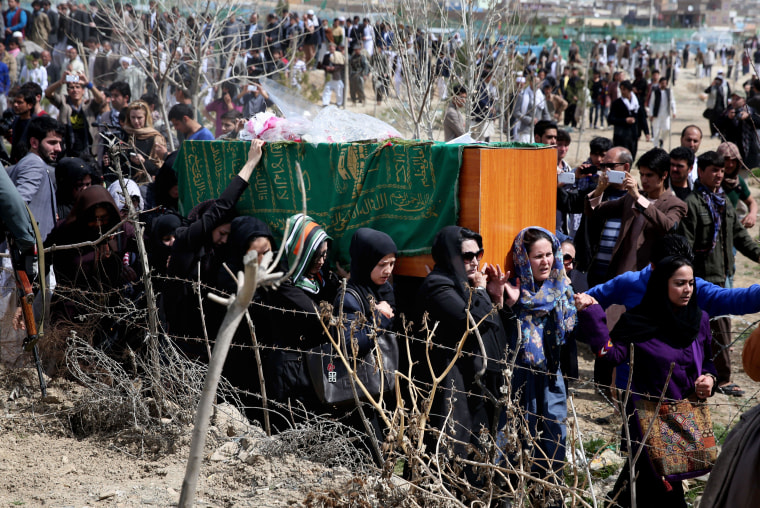KABUL, Afghanistan — Four men convicted of the brutal murder of a woman who was falsely accused of burning a Quran had their death sentences overturned on Wednesday, a judicial source told NBC News.
The men were sentenced to death in May for the killing of Farkhunda, a young Afghan religious scholar. Farkhunda was beaten, run over by a car, thrown into a river and set alight by a mob on March 19. A video of her murder sparked widespread outrage and protests in Afghanistan.
The four men's terms were reduced to 20 years each during Wednesday's hearing. A caretaker of Kabul’s Shah-Do Shamshira holy shrine and a local district police chief were also acquitted.
Omran, the keeper of the shrine, was one of eight men sentenced to 16 years of jail time for inciting the murder. The police chief was one of 11 police officers serving one year for failing to prevent the attack. Seventeen men remain in prison for their involvement with their sentences unchanged.
“We are very upset with the decision of the appeals court,” Mohammad Nadir, Farkhunda’s father, told NBC News. “We do not accept this ruling and will go to the Supreme Court. It is not justice."
Violence against women often goes unpunished in Afghanistan despite constitutional guarantees of equality.
Related: As U.S. Draws Back, Afghan Women's Future in Doubt
“This is an indication of how unjust our justice system is,” women's rights activist Wazhma Frogh told NBC News. “They made the decision under pressure from religious extremists and powerful circles."
She added: “There is not much we can do, but I am very disappointed and hopeless."


